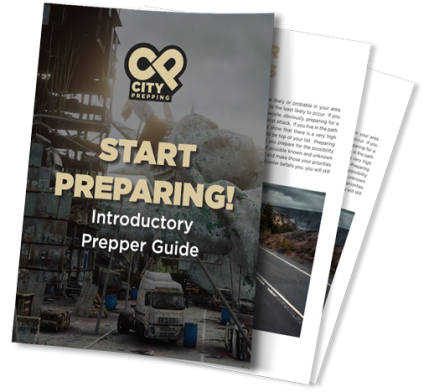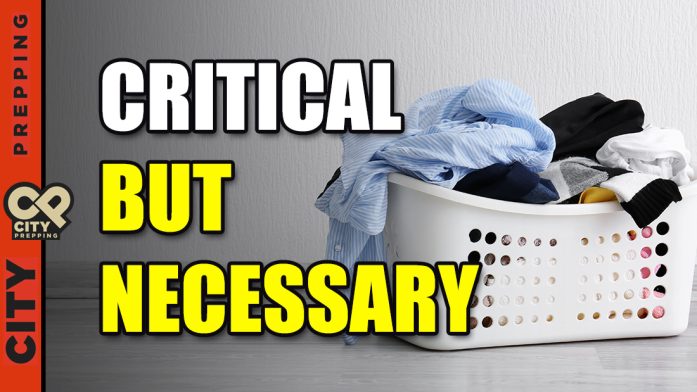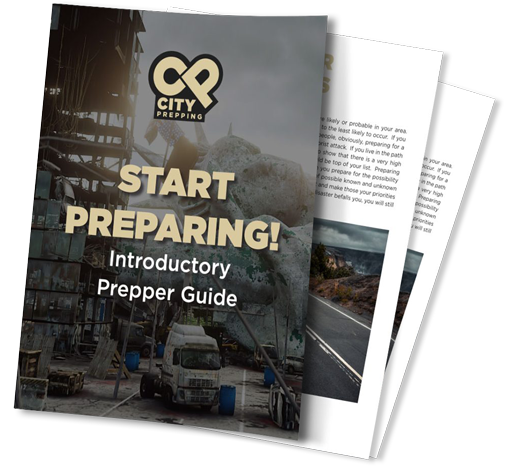https://youtu.be/cSkBcnLSWJc
 The premise of a larger global conspiracy relies upon slave owners seeking to overthrow their enslaved people. The super-wealthy who control the means of production, food, water, and land resources, your workday, politicians, and more probably aren’t troubled by a single ordinary person or even a group, city, or state full of them. Why would a billionaire concern himself with the details of a single worker ant? What would he gain that he can’t easily just buy? It doesn’t make sense on any level unless you also subscribe to even odder ideologies like hidden societies and satanic cabals. So, a person has to descend further down the rabbit hole to justify each new theory associated with the first. At some point, the credible fact is dismissed without reasonable evaluation because it runs counter to the person’s meticulously scaffolded narrative, and it’s likely the source has been dismissed altogether as part of the nefarious plot, hell-bent on obfuscating the takeover. Some of the proposed facts are deemed dangerous if people subscribe to them. Some companies who fear liability block those facts or put disclaimers on them. This only fuels the false narrative even more, as the believers determine that the censoring or deletion of the alleged facts is proof of their truth and the effort to suppress it. It’s a slippery slope that, unfortunately, on which we have seen many sliding away in recent years. How many wild Hollywood movies begin with “what I am about to tell you is dangerous information and could get us both killed?”
The structure of the internet encourages this. Anonymous and lacking redundancy and fact-checking, you can confirm any bias or thought you have, no matter how ludicrous, with a few internet searches. Even if you question the overall integrity of the source, their matter-of-fact, listen or die, presentation style is enough to sow even a little hesitancy in the reader or viewer. How many ordinary people have this last year suddenly discovered something that every well-educated scientist has completely missed after a lifetime of study, research, and exploration? Yet, the anonymity behind internet users encourages people to dismiss and name-call anyone that doesn’t buy into their philosophy. If you don’t believe that ultra-rich capitalists want to implement socialism where money isn’t needed anymore, you must either be part of the plot or one of the many blind sheep where only the espouser of the belief is a wolf. It’s hard for many to accept what Shakespeare summed up years ago, that the ordinary person is but a “poor player, that struts and frets his hour upon the stage, and then is heard no more: it is a tale told by an idiot, full of sound and fury, signifying nothing.” How awful is it that people need these beliefs so they don’t have to face the harsh reality that their role in the world is actually relatively small?
There is a certain level of narcissism that accompanies much of this thinking. Here we use that term with its psychoanalytic meaning in mind: “self-centeredness arising from failure to distinguish the self from external objects.” People who believe in past lives tend to think they were someone famous in a past life, yet history is more full of ordinary peasants and plebes than famous characters. You just don’t hear about them. Many UFO fanatics subscribe to some ancient visitation by alien races so they could harvest gold from our planet, completely ignoring the fact that the element gold is in abundance throughout the universe. Some take such theories a step further and claim alien races are walking amongst us or have, in the past, genetically engineered our DNA with some of ours. The theories are numerous, but they center around a specific gravity of ego. The people who are apt to believe such theories also believe that they are important enough that there is a willingness to target them. That makes them feel important and further bolsters their beliefs.
Take, for example, the person who goes through extraordinary lengths to protect themselves from hackers or would-be burglars, yet they have nothing in their bank account to steal or few possessions that burglars would desire. Reasonable precautions like solid passwords and closed networks are sufficient and akin to not leaving your wallet laying on the ground; however, multiple anti-viruses and encryption programs that compete for resources and degrade performance all to protect a few hundred dollars might not be reasonable. With any plot or espoused theory, ask yourself, “What role do we have in this?” If it’s a role where vast networks are out to get a common person or take their money, enslave them, plant chips in them, zombify them, steal their children, or whatever is so large a conspiracy that they are considered a high-value target of it, there’s an excellent likelihood that, though believing it might provide a person a tremendous feeling of self-importance and value, it’s likely false. The harsh reality is that most people don’t have any particular prominence on the world stage. A person who is already enslaved by manipulated media, a forty-hour or more workweek, corporate farms and manufacturers producing a narrow range of products compared to nature’s abundance, and so forth isn’t much of a target for the rulers, seen and behind the scenes, whoever they are.
Is that all to say that people aren’t exploited every day? Absolutely not. People get exploited and manipulated every day. That fact does not necessitate that the exploitation is tied to some greater plot. A person’s computer getting hacked may be more because they clicked that phishing email link and less that there is a global conspiracy to suppress the truth they have found. Their house getting broken into is more likely a random opportunistic crime than a planned, carefully orchestrated plot. Eliminate your ego from the equation when assessing any larger theory. If your exploitation or demise is directly tied to the theory and underpins it, well…we hate to break it to you, but you might not be as important in the world as you think you are.
COMPLEX PROBLEMS REQUIRE COMPLEX SOLUTIONS
The premise of a larger global conspiracy relies upon slave owners seeking to overthrow their enslaved people. The super-wealthy who control the means of production, food, water, and land resources, your workday, politicians, and more probably aren’t troubled by a single ordinary person or even a group, city, or state full of them. Why would a billionaire concern himself with the details of a single worker ant? What would he gain that he can’t easily just buy? It doesn’t make sense on any level unless you also subscribe to even odder ideologies like hidden societies and satanic cabals. So, a person has to descend further down the rabbit hole to justify each new theory associated with the first. At some point, the credible fact is dismissed without reasonable evaluation because it runs counter to the person’s meticulously scaffolded narrative, and it’s likely the source has been dismissed altogether as part of the nefarious plot, hell-bent on obfuscating the takeover. Some of the proposed facts are deemed dangerous if people subscribe to them. Some companies who fear liability block those facts or put disclaimers on them. This only fuels the false narrative even more, as the believers determine that the censoring or deletion of the alleged facts is proof of their truth and the effort to suppress it. It’s a slippery slope that, unfortunately, on which we have seen many sliding away in recent years. How many wild Hollywood movies begin with “what I am about to tell you is dangerous information and could get us both killed?”
The structure of the internet encourages this. Anonymous and lacking redundancy and fact-checking, you can confirm any bias or thought you have, no matter how ludicrous, with a few internet searches. Even if you question the overall integrity of the source, their matter-of-fact, listen or die, presentation style is enough to sow even a little hesitancy in the reader or viewer. How many ordinary people have this last year suddenly discovered something that every well-educated scientist has completely missed after a lifetime of study, research, and exploration? Yet, the anonymity behind internet users encourages people to dismiss and name-call anyone that doesn’t buy into their philosophy. If you don’t believe that ultra-rich capitalists want to implement socialism where money isn’t needed anymore, you must either be part of the plot or one of the many blind sheep where only the espouser of the belief is a wolf. It’s hard for many to accept what Shakespeare summed up years ago, that the ordinary person is but a “poor player, that struts and frets his hour upon the stage, and then is heard no more: it is a tale told by an idiot, full of sound and fury, signifying nothing.” How awful is it that people need these beliefs so they don’t have to face the harsh reality that their role in the world is actually relatively small?
There is a certain level of narcissism that accompanies much of this thinking. Here we use that term with its psychoanalytic meaning in mind: “self-centeredness arising from failure to distinguish the self from external objects.” People who believe in past lives tend to think they were someone famous in a past life, yet history is more full of ordinary peasants and plebes than famous characters. You just don’t hear about them. Many UFO fanatics subscribe to some ancient visitation by alien races so they could harvest gold from our planet, completely ignoring the fact that the element gold is in abundance throughout the universe. Some take such theories a step further and claim alien races are walking amongst us or have, in the past, genetically engineered our DNA with some of ours. The theories are numerous, but they center around a specific gravity of ego. The people who are apt to believe such theories also believe that they are important enough that there is a willingness to target them. That makes them feel important and further bolsters their beliefs.
Take, for example, the person who goes through extraordinary lengths to protect themselves from hackers or would-be burglars, yet they have nothing in their bank account to steal or few possessions that burglars would desire. Reasonable precautions like solid passwords and closed networks are sufficient and akin to not leaving your wallet laying on the ground; however, multiple anti-viruses and encryption programs that compete for resources and degrade performance all to protect a few hundred dollars might not be reasonable. With any plot or espoused theory, ask yourself, “What role do we have in this?” If it’s a role where vast networks are out to get a common person or take their money, enslave them, plant chips in them, zombify them, steal their children, or whatever is so large a conspiracy that they are considered a high-value target of it, there’s an excellent likelihood that, though believing it might provide a person a tremendous feeling of self-importance and value, it’s likely false. The harsh reality is that most people don’t have any particular prominence on the world stage. A person who is already enslaved by manipulated media, a forty-hour or more workweek, corporate farms and manufacturers producing a narrow range of products compared to nature’s abundance, and so forth isn’t much of a target for the rulers, seen and behind the scenes, whoever they are.
Is that all to say that people aren’t exploited every day? Absolutely not. People get exploited and manipulated every day. That fact does not necessitate that the exploitation is tied to some greater plot. A person’s computer getting hacked may be more because they clicked that phishing email link and less that there is a global conspiracy to suppress the truth they have found. Their house getting broken into is more likely a random opportunistic crime than a planned, carefully orchestrated plot. Eliminate your ego from the equation when assessing any larger theory. If your exploitation or demise is directly tied to the theory and underpins it, well…we hate to break it to you, but you might not be as important in the world as you think you are.
COMPLEX PROBLEMS REQUIRE COMPLEX SOLUTIONS
 Spoiler alert: Governments are not very good at implementing solutions. They’re reactive and not proactive. They are often basing their decisions on very few of the actual facts. Consider how many politicians legislate the internet but don’t understand how it works or use it themselves. Public opinion doesn’t always reflect a common sense and sober assessment of the facts. Only totalitarian or dictatorships are proactive, completely ignoring the people’s will. Democracies, Constitutional Republics, Constitutional Monarchies, or whatever you call any government where the people’s input is factored into the governance require a slow process of governing with the argument all along the way.
It is hard to convince people to wear seatbelts unless fines are implemented. It’s hard to get people to willingly receive a vaccine when they question whether a virus exists at all. Still, neither example of government mandate results in a complete willingness of the citizenry to comply. The COVID virus, inflation, the supply chain failings are all complex problems that require complex solutions. Those complex solutions, however, cannot be achieved because they need either heavy-handed government policy or broad consensus. Neither is likely to happen.
When assessing whether the efforts of a government are part of some larger plot or simply efforts to retroactively herd cats, consider first your role in the bigger picture, then the motives of the government. Are they really out to get you, or are they trying to respond to an already raging, three-alarm fire?
HOW WE GOT HERE: MODERN DISTRUST
Spoiler alert: Governments are not very good at implementing solutions. They’re reactive and not proactive. They are often basing their decisions on very few of the actual facts. Consider how many politicians legislate the internet but don’t understand how it works or use it themselves. Public opinion doesn’t always reflect a common sense and sober assessment of the facts. Only totalitarian or dictatorships are proactive, completely ignoring the people’s will. Democracies, Constitutional Republics, Constitutional Monarchies, or whatever you call any government where the people’s input is factored into the governance require a slow process of governing with the argument all along the way.
It is hard to convince people to wear seatbelts unless fines are implemented. It’s hard to get people to willingly receive a vaccine when they question whether a virus exists at all. Still, neither example of government mandate results in a complete willingness of the citizenry to comply. The COVID virus, inflation, the supply chain failings are all complex problems that require complex solutions. Those complex solutions, however, cannot be achieved because they need either heavy-handed government policy or broad consensus. Neither is likely to happen.
When assessing whether the efforts of a government are part of some larger plot or simply efforts to retroactively herd cats, consider first your role in the bigger picture, then the motives of the government. Are they really out to get you, or are they trying to respond to an already raging, three-alarm fire?
HOW WE GOT HERE: MODERN DISTRUST
 The roots of distrust in government stretch back to the beginning of government. It is not new. People naturally buck against the concept of being ruled or governed. Even when governments pay them income, build their roads, schools, and provide significant subsidies to countless organizations that directly improve their lives, citizens often loudly proclaim their autonomy and boast about their self-sufficiency, independence, and freedoms. Governments try earnestly to fulfill their promises to the people but often fall far short of those promises. Their mistakes are amplified in the forms of corruption and scandal that taints the entire endeavor. With the internet, the rise of electronic and streaming media, 24-hour news cycles which required pundits, no matter how qualified to speak, to chime in on every nuance of elected leaders, politics became mainstream entertainment.
Some link America’s current state of divisiveness and its teetering democracy all the way back to 9/11. After that attack on the country’s buildings and psyche, there was a moment, albeit brief, when people came together. In very short order, the ruling Taliban refused to extradite Osama Bin Laden, the attack’s mastermind. Along with the largest coalition of countries in the world, America was at war with Afghanistan. That war lasted just two months shy of 20 years. It cost 2.3 trillion dollars, finally resulted in the killing of Osama Bin Laden, and the country is now, again, in the hands of the same Islamic, Jihadist, Militant Taliban it was before the war even began. On February 5th, 2003, however, former General and then-Secretary of State Colin Powell appeared before the United Nations and proclaimed:
“…The United States knows about Iraq’s weapons of mass destruction … Iraq’s behavior demonstrates that Saddam Hussein and his regime have made no effort … to disarm as required by the international community. Indeed, the facts and Iraq’s behavior show that Saddam Hussein and his regime are concealing their efforts to produce more weapons of mass destruction…every statement I make today is backed up by sources, solid sources. These are not assertions. What we’re giving you are facts and conclusions based on solid intelligence.”
It was a convincing enough statement to launch the United States and several other countries into the second war in Iraq. No weapons of mass destruction were found, and over 7,000 service members and 8,000 contractors lost their lives between the two wars. Over 30,177 U.S. service members and veterans of the post-9/11 wars have died by suicide. Over six trillion dollars was spent on the war efforts. Many would, here, discuss the validity of the wars, whether they were right or wrong, or whether anyone actually won or lost; however, my point is how we reached this high point of distrust of government, and these drawn-out wars, perhaps started under false pretenses and amplified in a culture of nationalistic pride, bravado, and fear of further attacks provided ample material for political rivals and pundits to pick each other apart. Distrust of government has risen to an all-time high.
DEHUMANIZING LANGUAGE & ESCALATING VIOLENCE
The roots of distrust in government stretch back to the beginning of government. It is not new. People naturally buck against the concept of being ruled or governed. Even when governments pay them income, build their roads, schools, and provide significant subsidies to countless organizations that directly improve their lives, citizens often loudly proclaim their autonomy and boast about their self-sufficiency, independence, and freedoms. Governments try earnestly to fulfill their promises to the people but often fall far short of those promises. Their mistakes are amplified in the forms of corruption and scandal that taints the entire endeavor. With the internet, the rise of electronic and streaming media, 24-hour news cycles which required pundits, no matter how qualified to speak, to chime in on every nuance of elected leaders, politics became mainstream entertainment.
Some link America’s current state of divisiveness and its teetering democracy all the way back to 9/11. After that attack on the country’s buildings and psyche, there was a moment, albeit brief, when people came together. In very short order, the ruling Taliban refused to extradite Osama Bin Laden, the attack’s mastermind. Along with the largest coalition of countries in the world, America was at war with Afghanistan. That war lasted just two months shy of 20 years. It cost 2.3 trillion dollars, finally resulted in the killing of Osama Bin Laden, and the country is now, again, in the hands of the same Islamic, Jihadist, Militant Taliban it was before the war even began. On February 5th, 2003, however, former General and then-Secretary of State Colin Powell appeared before the United Nations and proclaimed:
“…The United States knows about Iraq’s weapons of mass destruction … Iraq’s behavior demonstrates that Saddam Hussein and his regime have made no effort … to disarm as required by the international community. Indeed, the facts and Iraq’s behavior show that Saddam Hussein and his regime are concealing their efforts to produce more weapons of mass destruction…every statement I make today is backed up by sources, solid sources. These are not assertions. What we’re giving you are facts and conclusions based on solid intelligence.”
It was a convincing enough statement to launch the United States and several other countries into the second war in Iraq. No weapons of mass destruction were found, and over 7,000 service members and 8,000 contractors lost their lives between the two wars. Over 30,177 U.S. service members and veterans of the post-9/11 wars have died by suicide. Over six trillion dollars was spent on the war efforts. Many would, here, discuss the validity of the wars, whether they were right or wrong, or whether anyone actually won or lost; however, my point is how we reached this high point of distrust of government, and these drawn-out wars, perhaps started under false pretenses and amplified in a culture of nationalistic pride, bravado, and fear of further attacks provided ample material for political rivals and pundits to pick each other apart. Distrust of government has risen to an all-time high.
DEHUMANIZING LANGUAGE & ESCALATING VIOLENCE
 The second alarming aspect of contemporary American politics and culture is dehumanizing language. Mudslinging and name-calling aren’t new in politics, but people referring to others as animals, demons, or anything less than actually human is relatively new to the American political landscape. Dehumanization has been typically confined to racial discourse. The frightening problem that it presents is that it often leads to a post hoc justification for treating people differently, or it is a precursor to creating a group differently. People referring to others as animals or demons can lead to people believing that those who disagree with them don’t deserve the same treatment or respect as those who agree with them. This has played out in interaction after interaction, throughout our towns, communities, peaceful and not so peaceful protests.
People caught up in the moment, lashing out at others, driving their cars through crowds, firing gunshots, fighting, even storming our nation’s capital. Distrust has grown beyond its usual boundaries. The internet, lacking source vetting and corroboration, amplifies any espoused conspiracy theory into an alternate reality for some. In some cases, ordinarily good people feel justified to take matters into their own hands. In the case of Pizzagate, a theory was espoused that a child pedophile ring led by Democrats existed in the basement of a pizzeria. On December 4, 2016, Edgar Maddison Welch, a 28-year-old man from Salisbury, North Carolina, arrived at that pizza restaurant, which had no basement, by the way, and fired three shots from an AR-15 style rifle into the restaurant. Welch later told police that he had planned to “self-investigate” the conspiracy theory. Welch saw himself as the potential hero of the story—a rescuer of children. The story amplified away from its origins in Hillary Clinton’s emails. It evolved into a broader government conspiracy called “Pedogate,” which merges other far-fetched theories that a satanic cabal of elites implementing a New World Order are involved in sex trafficking of children, the harvesting of adrenal from live children, and human sacrifice. The merging of conspiracy theories offers proof to many. Efforts to debunk the theories are considered efforts to silence the truth. Is it any wonder that in such a climate of dehumanization, violence, and government mistrust, elections’ credibility wouldn’t also be called into question.
So, with the knowledge of how we got here and the two criteria for assessing government plots, we now, hopefully, soberly examine whether the government is overstepping its boundaries.
IS THE GOVERNMENT OVERSTEPPING ITS BOUNDARIES
The second alarming aspect of contemporary American politics and culture is dehumanizing language. Mudslinging and name-calling aren’t new in politics, but people referring to others as animals, demons, or anything less than actually human is relatively new to the American political landscape. Dehumanization has been typically confined to racial discourse. The frightening problem that it presents is that it often leads to a post hoc justification for treating people differently, or it is a precursor to creating a group differently. People referring to others as animals or demons can lead to people believing that those who disagree with them don’t deserve the same treatment or respect as those who agree with them. This has played out in interaction after interaction, throughout our towns, communities, peaceful and not so peaceful protests.
People caught up in the moment, lashing out at others, driving their cars through crowds, firing gunshots, fighting, even storming our nation’s capital. Distrust has grown beyond its usual boundaries. The internet, lacking source vetting and corroboration, amplifies any espoused conspiracy theory into an alternate reality for some. In some cases, ordinarily good people feel justified to take matters into their own hands. In the case of Pizzagate, a theory was espoused that a child pedophile ring led by Democrats existed in the basement of a pizzeria. On December 4, 2016, Edgar Maddison Welch, a 28-year-old man from Salisbury, North Carolina, arrived at that pizza restaurant, which had no basement, by the way, and fired three shots from an AR-15 style rifle into the restaurant. Welch later told police that he had planned to “self-investigate” the conspiracy theory. Welch saw himself as the potential hero of the story—a rescuer of children. The story amplified away from its origins in Hillary Clinton’s emails. It evolved into a broader government conspiracy called “Pedogate,” which merges other far-fetched theories that a satanic cabal of elites implementing a New World Order are involved in sex trafficking of children, the harvesting of adrenal from live children, and human sacrifice. The merging of conspiracy theories offers proof to many. Efforts to debunk the theories are considered efforts to silence the truth. Is it any wonder that in such a climate of dehumanization, violence, and government mistrust, elections’ credibility wouldn’t also be called into question.
So, with the knowledge of how we got here and the two criteria for assessing government plots, we now, hopefully, soberly examine whether the government is overstepping its boundaries.
IS THE GOVERNMENT OVERSTEPPING ITS BOUNDARIES
 The short answer is probably, yes. It always has. You can drill down to any specific issue and probably find an argument that the government overstretched its authority. The long answer is that it probably isn’t doing enough. In this case, we will look at the vaccination mandates and restrictions intended to combat the spread of COVID-19. Even before the United States was a nation, the would-be government was forcing vaccinations. On the 6th of January 1777, George Washington wrote to Dr. William Shippen Jr., ordering him to inoculate all of the forces that came through Philadelphia. He explained that: “Necessity not only authorizes but seems to require the measure, for should the disorder infect the Army . . . we should have more to dread from it, than from the Sword of the Enemy.” This less scientific form of inoculation than mRNA vaccinations involved injecting a little pus and blood from the smallpox lesions of infected soldiers under the skin of healthy soldiers.
In 1901, still fighting smallpox, the city of Boston registered 1,596 cases of the disease in an outbreak that forced officials to mandate compulsory vaccinations. One of the holdouts, a Lutheran pastor, named Henning Jacobson, took his argument all the way to the United States Supreme Court. The SCOTUS issued a ruling that legitimized the authority of states to “reasonably” infringe upon personal freedoms during a public health crisis by issuing a fine to those who refused vaccination. It is important to note that these vaccinations were not “forced.” The ruling allowed people to be fined or face other punitive measures if they declined the vaccination. Then it was a $5.00 fine. That would be the equivalence of about $165 today. In 1905, that 5 dollars would be enough to buy you 25 pounds of flour or sugar, 45 bottles of wine, 25 pounds of sour ball candy, or 37 pounds of steak. So, it was a hefty fine for the time.
At least in the United States, implementing fines for not vaccinating has legal precedence. In their effort to contain the virus, some other countries have implemented fines, even detainment, and quarantine centers. All measures have been met with mixed responses and mixed results. Some countries have had riots in the streets, and some will likely form a new political landscape. According to the Stringency Index, governments worldwide have implemented harsh policies in the proclaimed interest of public health. It is a newly formed measurement of nine metrics: school closures, workplace closures; cancellation of public events; restrictions on public gatherings; closures of public transport; stay-at-home requirements, public information campaigns, restrictions on internal movements, and international travel controls.
Still, the virus rages on with newer variants, despite vaccination and containment efforts. Many are willingly vaccinating themselves. Others refuse any vaccination. Many accept science and the long history of mRNA vaccinations. Others fear the science even turning their backs on the more traditional virus-based technology of the Johnson & Johnson vaccine. Some even entertain wild conspiracy theories that the vaccines contain fetal tissue or microchips, or the blood of the devil or the antichrist. A vocal minority on the far extremes claim coronavirus vaccines and masks herald the biblical “mark of the beast,” a reference to an apocalyptic passage from the Book of Revelation that suggests that the Antichrist will test Christians by asking them to put a mark on their bodies. Regardless of where you are on that spectrum from a vaccine creating scientist to a religious zealot, the range of divisive rhetoric, the opposing extreme views, and the climate of high unemployment, restrictive measures from governments, and the onslaught of a virus with no seeming end in sight, should be cause for alarm.
The chances of violent opposition to mandates and civil unrest, even insurrection, are probable worldwide.
WHAT’S NEXT?
The short answer is probably, yes. It always has. You can drill down to any specific issue and probably find an argument that the government overstretched its authority. The long answer is that it probably isn’t doing enough. In this case, we will look at the vaccination mandates and restrictions intended to combat the spread of COVID-19. Even before the United States was a nation, the would-be government was forcing vaccinations. On the 6th of January 1777, George Washington wrote to Dr. William Shippen Jr., ordering him to inoculate all of the forces that came through Philadelphia. He explained that: “Necessity not only authorizes but seems to require the measure, for should the disorder infect the Army . . . we should have more to dread from it, than from the Sword of the Enemy.” This less scientific form of inoculation than mRNA vaccinations involved injecting a little pus and blood from the smallpox lesions of infected soldiers under the skin of healthy soldiers.
In 1901, still fighting smallpox, the city of Boston registered 1,596 cases of the disease in an outbreak that forced officials to mandate compulsory vaccinations. One of the holdouts, a Lutheran pastor, named Henning Jacobson, took his argument all the way to the United States Supreme Court. The SCOTUS issued a ruling that legitimized the authority of states to “reasonably” infringe upon personal freedoms during a public health crisis by issuing a fine to those who refused vaccination. It is important to note that these vaccinations were not “forced.” The ruling allowed people to be fined or face other punitive measures if they declined the vaccination. Then it was a $5.00 fine. That would be the equivalence of about $165 today. In 1905, that 5 dollars would be enough to buy you 25 pounds of flour or sugar, 45 bottles of wine, 25 pounds of sour ball candy, or 37 pounds of steak. So, it was a hefty fine for the time.
At least in the United States, implementing fines for not vaccinating has legal precedence. In their effort to contain the virus, some other countries have implemented fines, even detainment, and quarantine centers. All measures have been met with mixed responses and mixed results. Some countries have had riots in the streets, and some will likely form a new political landscape. According to the Stringency Index, governments worldwide have implemented harsh policies in the proclaimed interest of public health. It is a newly formed measurement of nine metrics: school closures, workplace closures; cancellation of public events; restrictions on public gatherings; closures of public transport; stay-at-home requirements, public information campaigns, restrictions on internal movements, and international travel controls.
Still, the virus rages on with newer variants, despite vaccination and containment efforts. Many are willingly vaccinating themselves. Others refuse any vaccination. Many accept science and the long history of mRNA vaccinations. Others fear the science even turning their backs on the more traditional virus-based technology of the Johnson & Johnson vaccine. Some even entertain wild conspiracy theories that the vaccines contain fetal tissue or microchips, or the blood of the devil or the antichrist. A vocal minority on the far extremes claim coronavirus vaccines and masks herald the biblical “mark of the beast,” a reference to an apocalyptic passage from the Book of Revelation that suggests that the Antichrist will test Christians by asking them to put a mark on their bodies. Regardless of where you are on that spectrum from a vaccine creating scientist to a religious zealot, the range of divisive rhetoric, the opposing extreme views, and the climate of high unemployment, restrictive measures from governments, and the onslaught of a virus with no seeming end in sight, should be cause for alarm.
The chances of violent opposition to mandates and civil unrest, even insurrection, are probable worldwide.
WHAT’S NEXT?
 If the Omicron variant continues to spread at its current rate, roughly doubling every three to five days, it will be the most infectious wave of the virus to date. The early news is that the virus’s lethality is less, but we are still in the early days of this variant. This variant may have the same or higher hospitalizations and deaths. The vaccinations and naturally developed immunity through prior exposure may afford only reduced symptomatic response to the virus, possibly keeping people from hospitalization or a dirt nap, but not enough to keep them from getting sick.
We are likely to see travel between countries restricted or halted in this worst-case scenario. Some countries will continue lockdowns, though many governments now realize how detrimental to the global economy that is. In this worst-case scenario, infections and deaths will rise. When that is combined with people’s fatigue, feelings that government responses were either too heavy-handed or not heavy-handed enough, and continued distrust of government, this could easily spin out into chaos next year. One does not need to look far into the historical record to see how plague fueled civil unrest and revolution. The bubonic plague, the Plague of Provence, preceded revolutions in France and toppled monarchies throughout Europe. While it wasn’t the sole cause of revolutionary change, it was undoubtedly fueling the fire. The Justinianic Plague, also bubonic, certainly contributed to the decline of the Byzantine Empire and so on throughout history.
To think that COVID-19, historically high levels of distrust of government, large-scale unemployment, global inflation, and ever-widening income disparities won’t directly lead to civil unrest and possibly even the toppling of whole governments would be a naive view of the situation at hand. How far this goes will largely be determined by the extremity of the virus, the success or failure of governments to contain it, and citizens’ willingness to subjugate themselves to the will of what the governments deem the common good. We’re not going to lie. This could end badly for all of us.
CONCLUSION
Perhaps we cannot change the course. Maybe we cannot change or even direct the course of government mandates now and in the future. There is a reasonable probability that governments will be forced into implementing even more draconian measures in the name of public health. There is a very vocal and active group of people who, perhaps, still don’t acknowledge that a virus exists at all, as they have stuck to this belief for two years now. It is for these reasons that we recommend people start prepping. We cannot accurately forecast how bad it will get, but we can prep with the knowledge that, firstly, we are still amidst an active and spreading climate of infection. Secondly, people are on historically wide, far extremes of opinions and beliefs. And, thirdly, many indicators, including historical records, point to the overwhelming likelihood of civil unrest and possibly even revolt. This is the combination of three of the Ten Things You Must Prepare for in 2022 that we warned you about in an earlier blog– Deepening Political Divides, COVID-19 mutations, and Inflation pressures. We will link to that video at the end of this one.
For your part, prepare for inevitable lockdowns, extended periods indoors, potentially more waves of variants, and unavoidable civil unrest. In some countries, expect military intervention. Anticipate even the possibility of violent revolution. Sadly, things appear to be getting much worse before they will ever get any better. What do you think? Have we reached a tipping point– a point of no return? Let us know in the comments below.
Please, as always, stay safe out there.
If the Omicron variant continues to spread at its current rate, roughly doubling every three to five days, it will be the most infectious wave of the virus to date. The early news is that the virus’s lethality is less, but we are still in the early days of this variant. This variant may have the same or higher hospitalizations and deaths. The vaccinations and naturally developed immunity through prior exposure may afford only reduced symptomatic response to the virus, possibly keeping people from hospitalization or a dirt nap, but not enough to keep them from getting sick.
We are likely to see travel between countries restricted or halted in this worst-case scenario. Some countries will continue lockdowns, though many governments now realize how detrimental to the global economy that is. In this worst-case scenario, infections and deaths will rise. When that is combined with people’s fatigue, feelings that government responses were either too heavy-handed or not heavy-handed enough, and continued distrust of government, this could easily spin out into chaos next year. One does not need to look far into the historical record to see how plague fueled civil unrest and revolution. The bubonic plague, the Plague of Provence, preceded revolutions in France and toppled monarchies throughout Europe. While it wasn’t the sole cause of revolutionary change, it was undoubtedly fueling the fire. The Justinianic Plague, also bubonic, certainly contributed to the decline of the Byzantine Empire and so on throughout history.
To think that COVID-19, historically high levels of distrust of government, large-scale unemployment, global inflation, and ever-widening income disparities won’t directly lead to civil unrest and possibly even the toppling of whole governments would be a naive view of the situation at hand. How far this goes will largely be determined by the extremity of the virus, the success or failure of governments to contain it, and citizens’ willingness to subjugate themselves to the will of what the governments deem the common good. We’re not going to lie. This could end badly for all of us.
CONCLUSION
Perhaps we cannot change the course. Maybe we cannot change or even direct the course of government mandates now and in the future. There is a reasonable probability that governments will be forced into implementing even more draconian measures in the name of public health. There is a very vocal and active group of people who, perhaps, still don’t acknowledge that a virus exists at all, as they have stuck to this belief for two years now. It is for these reasons that we recommend people start prepping. We cannot accurately forecast how bad it will get, but we can prep with the knowledge that, firstly, we are still amidst an active and spreading climate of infection. Secondly, people are on historically wide, far extremes of opinions and beliefs. And, thirdly, many indicators, including historical records, point to the overwhelming likelihood of civil unrest and possibly even revolt. This is the combination of three of the Ten Things You Must Prepare for in 2022 that we warned you about in an earlier blog– Deepening Political Divides, COVID-19 mutations, and Inflation pressures. We will link to that video at the end of this one.
For your part, prepare for inevitable lockdowns, extended periods indoors, potentially more waves of variants, and unavoidable civil unrest. In some countries, expect military intervention. Anticipate even the possibility of violent revolution. Sadly, things appear to be getting much worse before they will ever get any better. What do you think? Have we reached a tipping point– a point of no return? Let us know in the comments below.
Please, as always, stay safe out there. 








